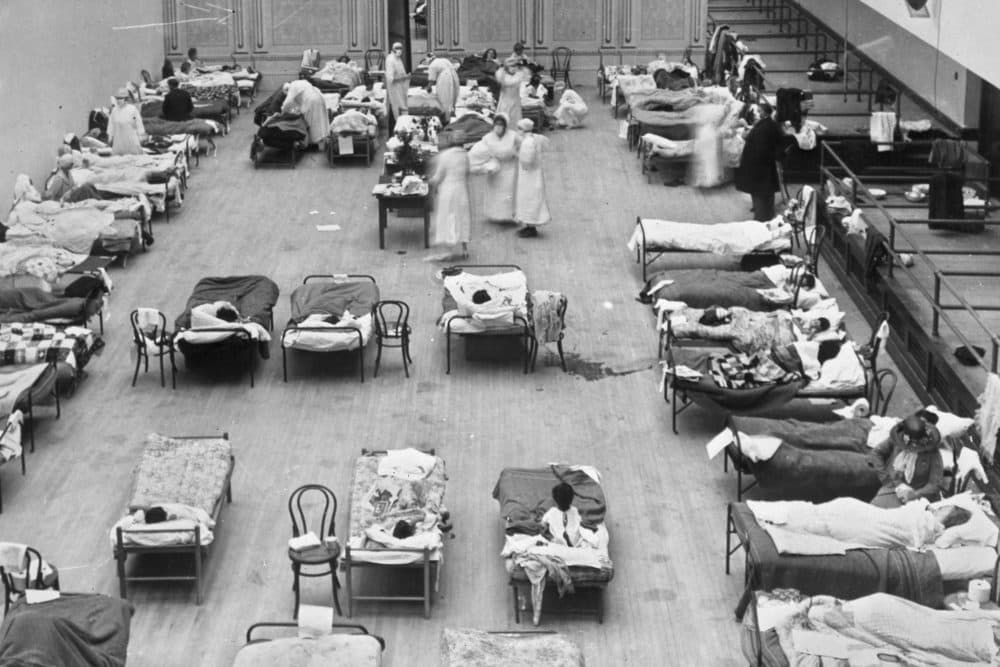Advertisement
Treatment Pioneered In 1918 Could Save COVID-19 Patients
Resume
Researchers in the U.S. say they are developing a treatment that could stave off the worst effects of COVID-19 and work to prevent the disease from spreading.
It’s a treatment that was used during the 1918 influenza pandemic involving the use of blood from recovered flu patients. And now Dr. Peter Hotez, a professor of virology and microbiology at Baylor College of Medicine in Texas, is promoting convalescent serum antibody treatment to save especially first responders who are treating patients infected with coronavirus.
“It involves taking serum from patients who recovered from the virus because it has potentially a high level of antibodies,” he says, “isolating the antibodies, then giving it back to either sick patients or now potentially could be used for health care workers in a lower dose in order to protect them from a couple of weeks of getting the infection.”
Isolating the antibodies is important, so there is no risk of actually injecting people with the virus, Hotez says. There is a risk of potential lung injury, but that is uncommon.
“The point is, if we're looking at large numbers of patients in intensive care units or very sick individuals, if it has an opportunity to lower mortality, that could make a big difference to the nation,” he says. “It's really a stopgap measure until we can develop our vaccines and other groups can develop their vaccines or we have a new drug available.”
This treatment could potentially be used to protect health care workers on the frontline of this crisis, Hotez says. Dozens of health care workers in the U.S. have been infected with coronavirus, and others have been quarantined after possible exposure.
“You can imagine how incredibly destabilizing that would be in the United States if health care workers are going to work every day knowing that they could become severely ill and be taken care of by their colleagues,” he says. “Things could unravel very quickly. So for me, this is a national priority.”
Karyn Miller-Medzon produced and edited this interview for broadcast with Tinku Ray. Samantha Raphelson adapted it for the web.
This segment aired on March 17, 2020.

